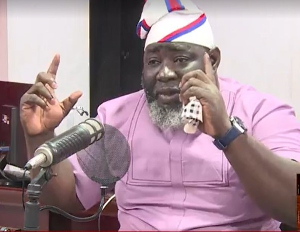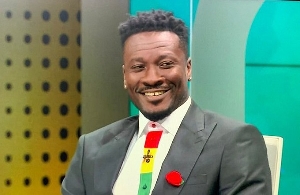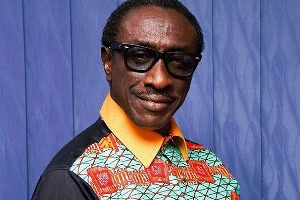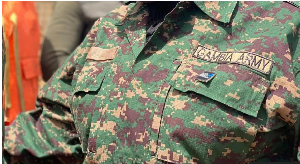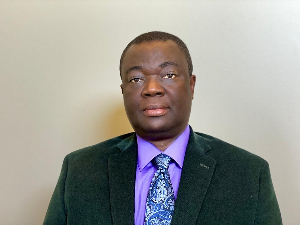Orangeburg, South Carolina
8TH July, 2013
The blatant rigging of elections in Kenya in 2007 and Zimbabwe in 2008---the need for foreign troops to settle the results of the Ivoirian elections in 2011-- the removal of Egyptian President Morsy from power.
These are indicators that the rule of law is failing in Africa.
The rule of law is central to democracy. Late Justice Bingham, echoing the UN, said, “The core of the principle is that all persons and authorities within the state, whether public or private, should be bound by and entitled to the benefits of laws publicly made and publicly administered in the courts.” Lord Denning added that, “The rule of law is not confined to the negative aspects of preventing the executive from abusing its power. It has a positive aspect involving the duty of government not only to respect personal rights but to act positively for the well-being of the people as a whole.”
The rule of law has never fared well in Africa. King Leopold’s Belgian Congo, the wars of liberation and the end of apartheid all testify to this. Even after colonialism, most of Africa practiced rule by men more than the rule of law. Suffice it to say that even where there was nominal democracy, the argument of force was more persuasive than the force of argument.
At the turn of the millennium, a new wind of democratic change blew across Africa and with it, the re-emergence of the rule of law. There were elections in Benin, Ghana, Nigeria, Kenya and the Ivory Coast, to name just a few.
Unfortunately, two decades on, it appears that the rule of law never took hold. Aside from the blatant examples cited earlier, there is more. In Kenya, despite the indictment of Uhuru Kenyatta by the International Criminal Court, he was elected President. Indeed, the indictment helped his campaign. Kenyans resented the urgings of Western countries to vote against Kenyatta. Omar el Bashir of Sudan has been indicted but came close to being the chair of the AU twice. In the Ivory Coast, most of those involved in the mass killing in their civil war on the side of President Ouattara are walking around free in a classic manifestation of victors’ justice.
Even when dealing with corruption, there appears to be uneven or incompetent justice. In Nigeria and South Africa, anti-corruption bodies have been used to target those out of favour with governments—as in the cases of then Vice-Presidents Atiku and Zuma respectively. In Ghana, this culture of impunity is on display in the “judgment debt saga”, where the recipients of gargantuan payments and their accomplices in government are walking around free while the nation bleeds from the leaching of its vital resources. Indeed, the only person who has suffered any consequences is former Attorney General, Martin Amidu who opposed the payments.
While some of the abandonment of the rule of law is opportunistic, it appears that in most instances, Africans are choosing to put other needs ahead of the rule of law. It appears that in 2007, Kenyans put peace ahead of Justice in abiding Kibaki’s rigging of their vote. In 2013, they put sovereignty ahead of the rule of law in voting for Kenyatta, under indictment for the deaths of over one thousand Kenyans. Zimbabwe followed Kenya’s path following their disputed 2008 elections.
It is disquieting that many of these departures from the rule of law have the support of large segments of the societies, including intellectuals. Mr. Morsy’s ouster through a coup d’état is supported by many Egyptians who demonstrated for democracy two years ago. In Ghana, commentators on the election petition case have been jailed in a blatant disregard for due process to widespread approval, not just from the public but from some much respected figures. Sam Okudzeto, who became a national hero for his leadership in the fight for democracy, was reportedly “happy” with the sentences for the contemptors. Another icon of the struggle for civil rights, Alhaji Harruna Attah, was muted in his condemnation of the Supreme Court for the contempt sentences. As he put it to me, “While I sympathize with my fellow journalist, I believe that Ghana is in a very dangerous place and we need to clean the public square of reckless speech.” Even the Ghana Bar Association, historically committed to free speech, supported the sentences.
Whither the rule of law then?
I say forward, carefully.
The lessons, large and small from what I have recounted here is that the rule of law is not entrenched in most of Africa and even its fragile gains can be eroded. Therefore, we must all work to strengthen it. While courts must be in the forefront of protecting the rule of law, they cannot be trusted to do so alone. Lawyers and judges must return to the side of journalists and individuals trying to express themselves, however inelegantly.
Our political parties too, must do their part. They must tolerate freedom of expression within their ranks while holding to account those of their members who exceed the bounds of reasonable free speech. Parties must stop making heroes out of hooligans. That will certainly strengthen the rule of law.
Next, the media must, while jealously guarding their and our right to free speech, be responsible. Freedom of expression has limits. In retrospect, someone should have shut down “Radio-Television Libre des Mille Collines” in Rwanda long before its effusions led to the Rwandan genocide.
Finally, rights go with responsibilities. As Sam Okudzeto put it,” It is time for us to exercise restraint and to begin to appreciate that freedom of speech does not give a license to be abusive, to be arrogant, to be insulting.” We must have the rule of law responsibly or we shall be returned to the rule of man.
Let Africa move to make this the century of the rule of law. If we do, it will also be the African century.
Arthur Kobina Kennedy
Opinions of Monday, 8 July 2013
Columnist: Kennedy, Arthur Kobina


